Mozambique: GABINFO calls for vote of confidence on media bills, but others are sceptical
Model of decentralisation under consideration can hardly bring political stability to Mozambique
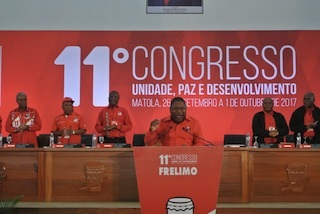
A Verdade
“One of the crucial issues of our young democracy has to do with decentralisation,” said Filipe Nyusi in his inaugural address to the Frelimo party congress in Matola. But academic Salvador Forquilha argues that “the model of decentralisation under consideration (…) in a context marked by a strong centralising tradition and by an ideology of national unity, which looks at decentralisation as a threat to the unitary state, can hardly play an important role in the management of the conflict and bring political stability to the country”.
Long before the latest Frelimo congress took place began, Mozambican political scientist Salvador Forquilha warned that one of the major challenges to state-building in Mozambique was the association of “decentralisation reforms with conflict management and political stability” because “it requires deconstruction and reinterpretation of the ideology of national unity, which looks at decentralisation, particularly devolution, as a threat to the unitary state”.
“Mozambique needs not only another model of decentralisation, but also profound reforms of the political system itself, aiming at a greater sharing of power at different levels of the political-administrative organisation of the State, that is, a model of decentralisation that allows the diversity and social, economic and political heterogeneity of the country to be reflected in the decision-making processes and the construction of institutions. This would be possible through a model of decentralisation with a high degree of devolution to the provinces and local governments (urban and rural),” Forquilha suggests in an article published in the book “Challenges for Mozambique 2017″ from the Institute of Social and Economic Studies (IESE).
Democracy based on the principle the winner-takes-all encourages political exclusion and the politicisation of the state
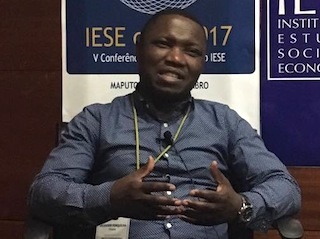
Although Filipe Nyusi said in his speech that Frelimo party should be proud of having initiated the decentralisation of Mozambique even before Independence, and recalled that it was the 1968 Congress that “approved a model of decentralised management of the liberated zones”, Forquilha goes back to the early days of the emergence of the Mozambican Liberation Front (Frelimo) to understand the structural divisions of the recurrent political conflict in our country.
“From the first years of its existence, Frelimo was far from representing a synthesis of interests of the different political formations that had joined the Front,” the researcher of processes of democratisation, decentralisation and local government affirms.
“Although reference to the struggle against tribalism, regionalism and racism was a constant in the political discourses of Frelimo’s ruling elites, from the beginning of the anticolonial struggle, the process of state-building revealed, later, the relevance of ethnic issues in the context of the claim of access to political power by certain groups outside and within Frelimo,” he writes.
Forquilha also noted that in a society as divided and heterogeneous as Mozambique, “a model of democracy based on the principle of the winner takes everything encourages the politicisation of the State and the consequent political exclusion which in Mozambique have reached important levels”.
Gradual decentralisation led to the emergence of two groups of Mozambicans
Anticipating the Frelimo president’s explanation that “there should be no conflict between decentralisation and preservation of our greatest achievement, that is, national unity”, the IESE researcher looks back to the first steps of towards a less centralised public administration in the 1990s, and among other aspects refers to the ever present “political culture crystallised in the ideology of national unity, which looks at decentralisation as a threat, rather than an opportunity”.
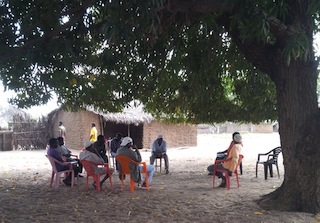
Frelimo’s choice of gradual decentralisation has led to the emergence of two groups of Mozambicans “who have the right to be governed locally by elected officials every five years (a minority – Mozambicans living in the 53 cities and villages where municipalities have been established) and those who do not have this right (a majority – Mozambicans living in the rest of the country’s districts) and are therefore governed locally by authorities appointed by the central State”.
The Mozambican academic has no doubt that “the current model of decentralisation, which combines at the same time decentralisation for the provinces and districts and a devolution to the 53 local authorities, in a context marked by a strong centralising tradition and by an ideology of national unity, which looks at decentralisation as a threat to the unitary state, can hardly play a relevant role in the management of the conflict and bring political stability to the country”.
By Adérito Caldeira




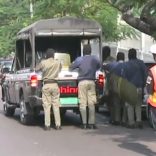
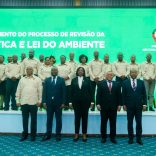
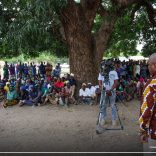






Leave a Reply
Be the First to Comment!
You must be logged in to post a comment.
You must be logged in to post a comment.